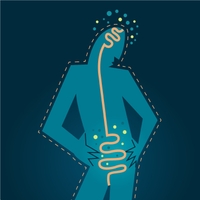
Dyslipidaemia, or abnormal serum lipid profiles, is a significant risk factor for cardiovascular disease (CVD) and increases the morbidity and mortality of CVD (1,2,3). Dyslipidaemia is characterised by elevated total cholesterol (TC) or low-density lipoprotein (LDL) cholesterol levels or low levels of high-density lipoprotein (HDL) cholesterol.
Various risk factors have been confirmed to be related to dyslipidaemia, including low cardiorespiratory fitness, obesity, physical inactivity, type 2 diabetes mellitus, smoking, alcohol, age and gender (4,5,6). In addition, sleep also plays an important role in the progression of dyslipidaemia (7,8,9).
Sleep is a vital physiological activity for humans, who spend about one-third of their time sleeping. Consequently, the associations between sleep duration and human health outcomes have received increasing attention (10,11). Several studies have demonstrated that sleep duration is associated with obesity (12,13), hypertension (14), diabetes (15), metabolic syndrome (16) and CVD (17,18,19). In addition to physical illnesses, sleep duration is also associated with psychological disorders such as stress perception and the incidence of depressive symptoms (20).
The association between sleep duration and dyslipidaemia has proven to be contradictory, with some studies finding short or long-duration sleep associations (9,21) and others finding no association (22,23). This discrepancy might be explained by inconsistencies in the study population, the classification of sleep duration and the definition of dyslipidaemia.
A recent population-based cross-sectional epidemiologic study of 60,283 adults (>18 years) in China found that both shorter and longer sleep durations were associated with abnormal serum lipid profiles in men and women (24).
Previous studies found that shorter and longer sleep duration was associated with dyslipidaemia in women but not men (25,26). The current study found differences between different elements of dyslipidaemia between men and women, but the effects on overall dyslipidaemia affected both males and females. Both short and long sleep duration was associated with dyslipidaemia, high TC, and high LDL cholesterol in men and women. Both short and long sleep duration was associated with elevated triglycerides (TG) in men, while short sleep duration was associated with high TG in women. Short and long sleep duration were associated with low HDL cholesterol in men but not women.
Some mechanisms explaining the differences between the effects of sleep duration in men and women:
- Different mechanisms of sleep duration affect the regulation of food intake between men and women. For example, sleep duration has been shown to affect total ghrelin
 levels in men but not women, and glucagon-like peptide 1(GLP-1) levels in women but not in men (27).
levels in men but not women, and glucagon-like peptide 1(GLP-1) levels in women but not in men (27). - The major sex hormones, testosterone in men and oestrogen and progesterone in women, have different mechanisms for regulating sleep duration and quality (28). Sleep disturbances induce changes in the gonadal endocrine axis, leading to lower circulating levels of testosterone. In addition, female reproductive milestones such as menarche, pregnancy, breastfeeding and menopause have profound implications for endogenous steroid exposure (29,30) with consequent effects on sleep regulation.
- Advanced glycosylation end products
 (AGEs) significantly increase as a result of chronic sleep deprivation. AGEs can induce endothelial damage through the apoptosis of endothelial cells. Gastrin has a protective effect on this process; however, males and females respond differently to gastrin and AGEs after sleep deprivation (16).
(AGEs) significantly increase as a result of chronic sleep deprivation. AGEs can induce endothelial damage through the apoptosis of endothelial cells. Gastrin has a protective effect on this process; however, males and females respond differently to gastrin and AGEs after sleep deprivation (16).
Conclusion
It is well known that sufficient good quality sleep is vital for maintaining optimal health, allowing the human body to restore function and energy, and reducing disease risks (31,32,33). According to the Australian Sleep Health Foundation, adults typically require 7-9 hours of sleep per night, with 6-10 hours being appropriate for some people (34). However, with the rapid development of the economy and modernisation, people face problems induced by the fast pace of life and high social pressure, which leads to anxiety, depression, and other emotional disorders, causing insomnia and poor sleep quality (35).
While this study is cross-sectional, which cannot infer a causal relationship between sleep duration and abnormal serum lipids, it adds to the growing body of evidence indicating that excessive and insufficient sleep duration is associated with abnormal serum lipids in men and women. Furthermore, sleep quality is also associated with abnormal serum lipids (36,37). Therefore, improving sleep quality and achieving sufficient sleep time is an important clinical objective for maintaining personal health and reducing CVD risk.




